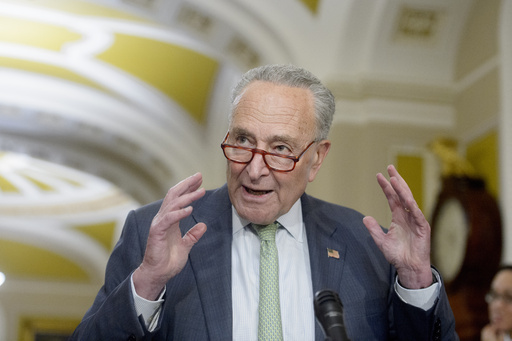House Speaker Mike Johnson plans to proceed with a temporary spending bill to avoid a government shutdown at the start of the new budget year on October 1. The bill proposes that individuals registering to vote must provide proof of citizenship, a key focus for Republicans during an election year. Despite concerns that led to the bill being withdrawn last week, Johnson emphasized the importance of preventing noncitizens from voting.
Johnson is prioritizing the bill’s progress and has not yet discussed alternative plans for funding the government. The legislation is set for consideration in the House on Wednesday. However, it faces challenges in the House and is unlikely to pass in the Senate due to opposition from Democrats and some Republicans.
Senate Majority Leader Chuck Schumer emphasized the need for bipartisan collaboration to avert a government shutdown. He criticized the House vote as destined for failure, urging for a joint effort to reach an agreement. The proposed bill aims to maintain current funding levels while negotiations continue on a full-year spending plan.
Some Democrats and Republicans advocate for a short extension to allow the next Congress to finalize the bill after the election. Conversely, Johnson and conservative members of his party advocate for a six-month extension, hoping for a Republican win in the election to strengthen their position when shaping the final bill.
Schumer raised concerns that a six-month extension would impact the military and other agencies requiring stable funding. Johnson remains committed to his proposal, emphasizing the necessity of securing federal elections from noncitizen participation.
Following discussions with former President Trump, who suggested withholding approval for a stopgap bill without election security assurances, Johnson aims to garner additional support for the bill. The bill previously passed in the House in July, with Republicans split on the issue due to concerns over excessive spending included in the legislation.


